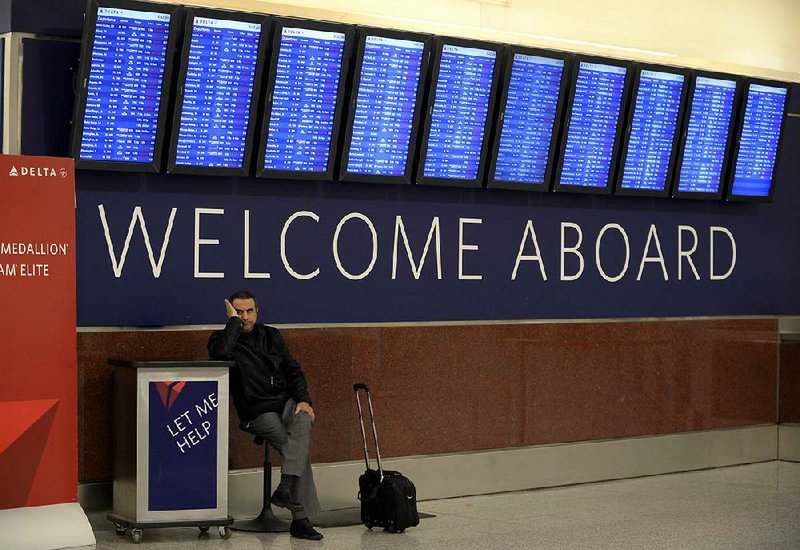Airlines in the U.S. would have to disclose bag fees and seat-assignment charges upfront when tickets are sold under a proposed change in federal transportation regulations designed to protect consumers released Wednesday.
Added fees make up a growing portion of the price of flying and those costs aren't always obvious while buying a ticket, the U.S. Department of Transportation said.
"Knowledge is power, and our latest proposal helps ensure consumers have clear and accurate information when choosing among air transportation options," Transportation Secretary Anthony Foxx said in an emailed statement.
The proposal would be the third air-traveler protection measure enacted under President Barack Obama and comes as airlines and some members of the House of Representatives are attempting to overturn earlier consumer regulations.
The new regulations would extend the same fee-disclosure rules to ticket agents and add requirements for smaller airlines to submit data on traffic and consumer issues, according to the agency. The measures stem from recommendations made by two U.S. advisory committees, it said.
Airlines believe they already provide customers with transparent pricing information and the proposed changes wouldn't be consistent with how the government regulates other businesses, the Washington-based trade group Airlines for America said in an emailed statement.
"We believe this proposal overreaches and limits how free markets work and will have negative consequences," the group said in the release.
Consumer groups said the measure was needed so people can make better choices while booking flights.
"I'm very pleased with most of the concepts" of the proposal, said Charlie Leocha, director of the Consumer Travel Alliance, an Arlington, Va.-based advocacy group. "It's something we've been asking for."
When shopping for a ticket, travelers would be able to enter information such as whether relatives want to sit together during a flight and how many bags they expect to check and then see a cost for the whole package, Leocha said.
Carriers collected $797 million in baggage fees and $675 million in reservation change fees in the fourth quarter of 2013, according to the Department of Transportation's Bureau of Transportation Statistics. The two fees represent 3 percent of total airline operating revenue for the period, according to the agency.
Airline profit for the period was $7.3 billion. The two fees made up 20 percent of profits.
American Airlines Group Inc. objects to how fees are portrayed and believes other businesses charge for extra services, President Scott Kirby, said Wednesday at a Wolfe Research Inc. transportation conference in New York.
"I hate the characterization of ancillary revenues as nickel and diming," Kirby said. "We spend more money carrying bags than we charge in bag fees. So we're not fully passing that on to the customers."
Spokesmen for Delta Air Lines, United Continental Holdings Inc., Spirit Airlines Inc. and Sabre Corp., owner of the online travel agency Travelocity, didn't immediately respond to calls seeking comment.
Airlines have been waging a battle against an earlier Transportation Department consumer rule that requires them to prominently display the full cost of a ticket, including government fees and taxes. The rule was enacted to allow passengers to more easily compare prices on tickets.
Airlines for America argues that the rule allows taxes to be hidden within the cost of a ticket. U.S. taxes now make up about $60 of a typical $300 round-trip domestic ticket, it said.
On April 9, the House Transportation and Infrastructure Committee unanimously approved a bill that would allow airlines to revert to the previous practice of emphasizing base fares that don't include taxes.
In a successful defense of the regulation before the U.S. Supreme Court, the Department of Transportation pointed to hundreds of complaints received during a comment period before issuing its final rule in 2012. Some consumers said they sometimes didn't know what they'd paid until after the transaction was completed, the department said.
Most people probably wouldn't consider the House legislation, known as the Transparent Airfares Act, very transparent at all, and with its new proposal, the Department of Transportation is going even further to ensure people know the true cost of a flight, Robert Mann, a former American Airlines executive and aviation consultant in Port Washington, N.Y., said in an interview.
"It's kind of a double-down in a different direction than the industry wants to go," Mann said.
Business on 05/22/2014
